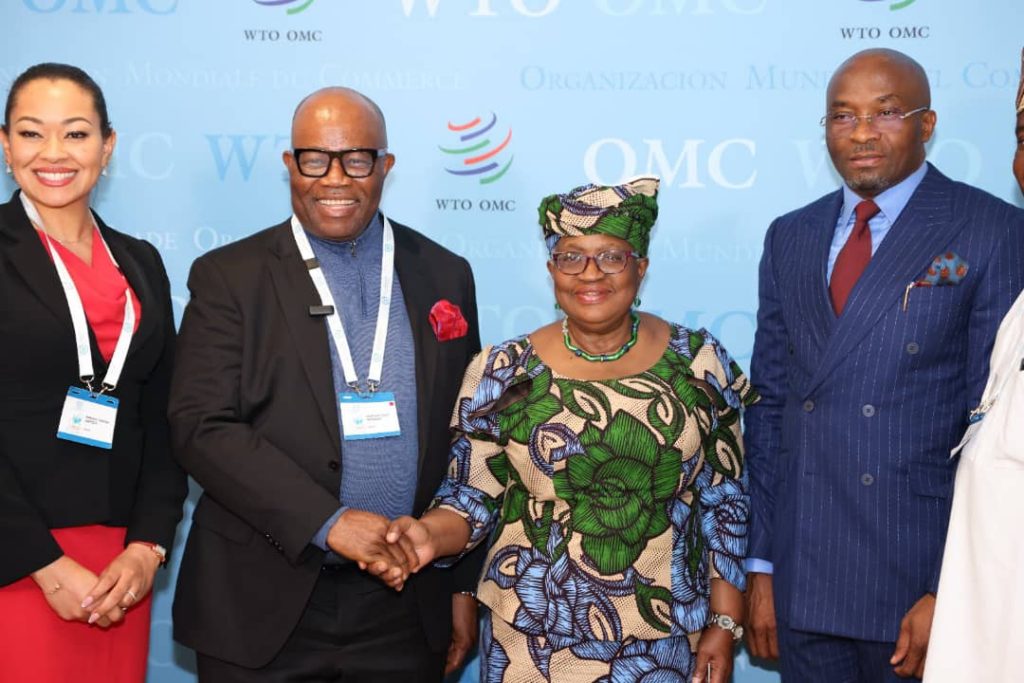Mr. Benjamin Okezie Kalu, the Deputy Speaker of Nigeria’s House of Representatives, has called for collaborative efforts with the World Trade Organisation (WTO) to bolster exports of primary products from Nigeria and Africa at large.
According to a statement by his Chief Press Secretary, Mr. Levinus Nwabughiogu, Kalu made this plea during his visit to Dr. Ngozi Okonjo-Iweala, the Director-General of the WTO, in Geneva. This visit occurred on the sidelines of the ongoing 148th assembly of the Inter-Parliamentary Union (IPU) in Switzerland.
Accompanied by Senate President Senator Godswill Akpabio and the leader of the Nigerian delegation to the IPU assembly, Kalu expressed concerns about the declining trend in the exports of primary products from Africa to other regions.

He highlighted the challenges faced by African businessmen, particularly regarding the marketing of products contaminated with aflatoxins before reaching their destinations. These challenges are exacerbated within the framework of “The African Growth and Opportunity Act (AGOA),” which offers duty-free treatment to goods from designated sub-Saharan African countries (SSAs).
Kalu urged the WTO to establish centres in Africa for the treatment of primary products intended for export, emphasising the importance of ensuring product quality to meet international standards.
“Africa is interested in exporting our primary products. We have always had issues with these primary products we are exporting. Aflatoxins, I don’t know what you are putting together to help these products reduce that because it’s one of the complaints about products coming from Africa.
“I don’t know if there will be centres around Africa where businessmen who cannot afford to do this decontamination will get that particular centre and detoxify their products to be able to meet the quality specifications before selling them off. Is WTO interested in this and how much so? Are there programmes designed to be able to facilitate this?” Kalu inquired.
In response, Dr. Okonjo-Iweala affirmed WTO’s awareness of the issue and its commitment to assisting countries in implementing protocols to address such challenges.


